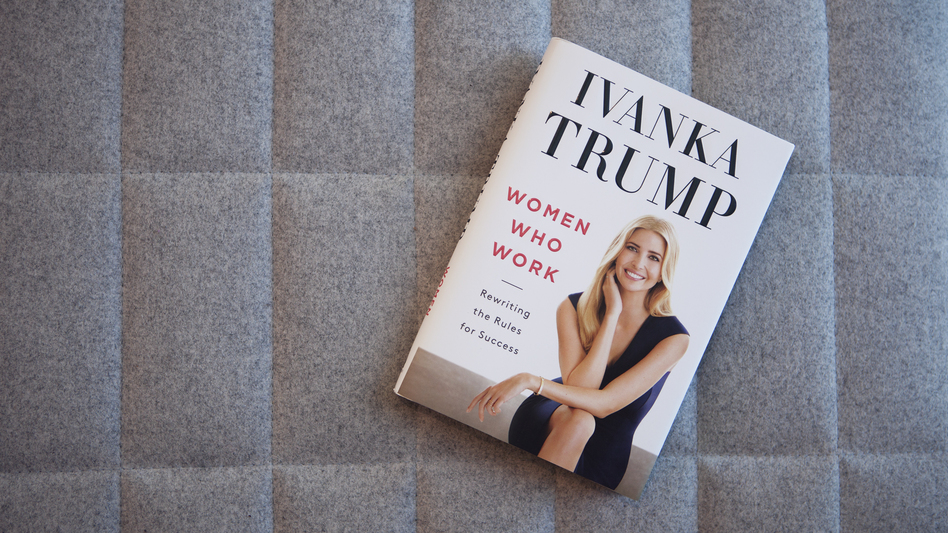“I believe that when it comes to women and work, there isn’t one right answer. The only person who can create a life you’ll love is you.” -- Ivanka Trump, excerpt from Women Who Work.
American businesswoman and former fashion model Ivanka Trump has published her much anticipated second book, entitled Women Who Work: Rewriting the Rules for Success. The release, which focuses on career advice for the modern millennial woman, was written before the presidential election in which her father, real estate mogul Donald Trump, proved triumphant.
The First Daughter attempts to coach her reader on how to integrate their work schedule with their personal life, so that the two merge seamlessly together. She bunks the long-established concept of a healthy work-life balance, arguing that successfully compartmentalising the two is not possible. Instead, she argues, we should embrace them both as one, and that this will stop us from setting ourselves up for failure.
Jennifer Senior, writer for New York Magazine and The Times, notes that while Trump frequently complains about the various demands on her time, it’s unlikely that she herself is managing her own schedule without personal staff and significant support. This, of course, is an invaluable privilege unavailable to most working women who, therefore, cannot succesfully implement her instruction.
Trump describes what she considers to be the typical ‘working woman’ as follows: “We’re aspiring to do work that we love, work that inspires us, and we’re pursuing our passions and unabashedly making them priorities. We’re training for marathons and learning to code. We’re planning adventures with our kids and weekend getaways with our friends.”
Her insensitivity and disregard for those less fortunate has drawn judgement. “There’s a lesson in here somewhere. It’s not an empowering one”, writes Michelle Goldberg of Slate, while Kate Taylor of Business Insider UK describes Women Who Work as “a mashup of countless essays and articles written in the past decade aimed at female entrepreneurs.”
“[Women Who Work] is a grab-bag of generic work-life advice for upper-middle-class white women who need to ‘architect’ (a verb that pops up a lot) their lives,” sneers Emily Peck of The Huffington Post. The public, however, have been astonishingly decisive in their opinion. Amazon has seen 43 per cent of ratings going straight to five stars, with 54 per cent giving it one star.
Disappointingly, although not unsurprisingly, Women Who Work features a subtle political current: “My father has always said, if you love what you do, and work really, really hard, you will succeed.” It seems that in her schema, people rather than circumstance are to blame for their own misfortune. She contrasts “proactive” people, who are “passionate and productive”, with “negative people” who are “swayed by the external”.
Still, Trump isn’t the first to make these observations, and she isn’t alone. “We pretend we can have it all,” Indra Nooyi, chief executive officer and chair of PepsiCo, told the Atlantic. “My husband and I have been married for 34 years. And we have two daughters. And every day you have to make a decision about whether you are going to be a wife or a mother, in fact many times during the day you have to make those decisions.”
“There’s no such thing as work-life balance. There’s work, and there’s life, and there’s no balance,” Sheryl Sandberg, chief operations officer of Facebook, said in a 2012 interview. Perhaps the critics’s problem with Women Who Work is not so much the message, but the writer who is behind it.




